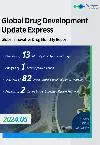SNU researchers develop AI for sleep apnea diagnosis
23 May 2023

Preview
Source: mobihealthnews
Photo: Ketut Subiyanto/Pexels
A new AI model for diagnosing sleep apnea has been developed by a research team at Seoul National University Bundang Hospital.
The deep learning model analyses cephalograms, focusing on the tongue and its surrounding structures, which are highly associated with sleep apnea.
Based on a press statement, the model was developed using head and neck x-ray image data of 5,591 patients at SNUBH. It was then tested in a study, which found it to be highly accurate in detecting sleep apnea.
WHY IT MATTERS
Around a billion people aged 30 and above globally have been estimated to have sleep apnea, and this number is not far from decreasing. Its prevalence and growth relate to increased detection and other risk factors, such as obesity and craniofacial and upper airway abnormalities.
According to the SNUBH research team, there are limitations to current screening tests available in the market for detecting sleep apnea. Some have low accuracy rates, while others may not be suitable for use in multi-person settings.
For this reason, they developed their AI model to further improve early diagnosis and treatment of sleep apnea while being simple and inexpensive.
MARKET SNAPSHOT
A research team from Japan is also using AI to study sleeping disorders and identify digital biomarkers related to them. Four H and Aculys Pharma have embarked on this research with the aim of building a comprehensive sleep ecosystem to improve people's quality of sleep.
Meanwhile, a mobile phone-based sleep apnea test called SleepCheck Rx by Australian company ResApp received the United States FDA's 510(k) clearance last year. The app screens for apnea by analysing records of breathing and snore sounds.
Also, Singaporean smartwatch brand BUZUD has recently added oxygen saturation measurement to its smartwatch products, providing a capability to measure and track sleep patterns for identifying sleep apnea.
Tags: Seoul National University Bundang Hospital, South Korea, sleep apnea, AI, AI diagnosis
For more details,please visit the original website
The content of the article does not represent any opinions of Synapse and its affiliated companies. If there is any copyright infringement or error, please contact us, and we will deal with it within 24 hours.
Indications
Targets
-Drugs
-Chat with Hiro
Hot reports
Get started for free today!
Accelerate Strategic R&D decision making with Synapse, PatSnap’s AI-powered Connected Innovation Intelligence Platform Built for Life Sciences Professionals.
Start your data trial now!
Synapse data is also accessible to external entities via APIs or data packages. Empower better decisions with the latest in pharmaceutical intelligence.





